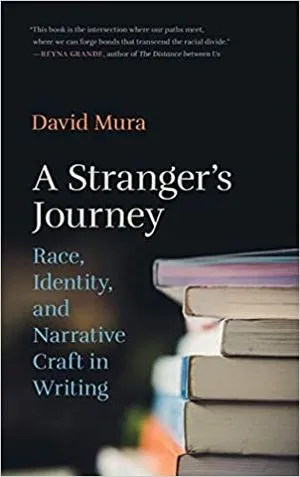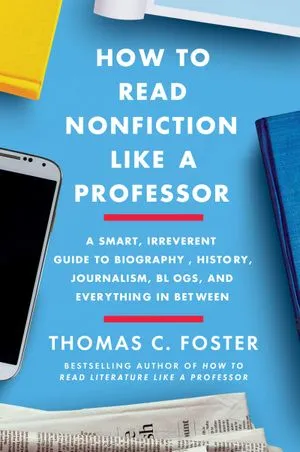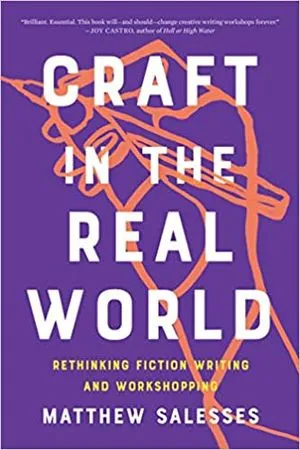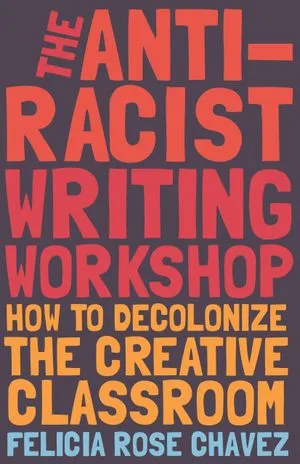
7 of the Best Books About Writing
If we’ve seen anything in the last six years in particular, I think it’s safe to say that there seems to be a lack of critical thinking about what we read. (Myself included — it’s easy to let publications that normally align with our views to go unexamined). I think for writers, we are also seeing a shift in the way writing is approached and how we think about the craft, the teaching, and the process of writing.
Language evolves; it is not static. It has always changed, and this is nothing new. It follows, then, that writing and the way we think about it and teach it should also evolve and change. But change has been…very slow. MFA programs in particular seem to be guilty of this (don’t @ me, I’m not dissing MFA programs, I went to one — I’m just saying they could use some examining, like many other kinds of educational programs). Many MFA programs still eschew genre writing, have very rigid views on what they deem “literary,” still follow the traditional workshop model, or are still teaching the same syllabi from years ago, full of mostly dead white men.
Social media, memes, and self-publishing platforms can be great, but they can also be hotbeds of misinformation, falsehoods, and at worst, hateful or dangerous rhetoric. As someone with a public health background, if I chose to refute what I see even on some of my Facebook friends’ posts, I’d be on social media all day arguing with people who think The Lancet is some medieval jousting tool. But in all seriousness, even when we read reputable outlets, critical thinking is important: who is writing this, where are they coming from with this, who funded this study, what is the aim here? And we should be reading widely from a variety of sources. We should also do this even when we’re reading things with which we agree.
Thoughtful reading and writing is a constant practice, I’m finding. That’s not a bad thing. It keeps our minds fresh, enables us to check our own biases and judgments, and pushes us to keep questioning ourselves. It can be hard to figure out where to start, though, and when that happens, I usually turn to books. These are seven of my favorite books about reading and writing.
Reading Like a Writer: A Guide for People Who Love Books and For Those Who Want to Write Them by Francine Prose
When I started to consider applying to MFA programs, this was one of the first books I read. Prose brings up the question of: how did people learn to write before writing workshops and degrees? The answer is obvious: by reading widely; by reading books from writers who came before and those who are writing now. In any MFA program, you’ll find much of the same advice: if you want to write, you need to read — a lot. Prose goes through the techniques and tools of noted writers like Austen, Woolf, and Chekhov, showing the reader what to notice and glean from the text. A smart, humorous book, this would be the first one I’d recommend to anyone interested in writing or critical reading.
A Stranger’s Journey: Race, Identity, and Narrative Craft in Writing by David Mura
In this book, Mura takes a look at the diversity of American literature (something many books on reading/writing, including Prose’s book, have often failed to do) and puts forth a new way of discussing and teaching craft, especially regarding race. Two questions that shape this book include those of identity and how one tells a story — and uses our newer canon to dive deep into his answers. He uses examples from ZZ Packer, Mary Karr, and Maxine Hong Kingston, among others, to make his points. This is a must-read for anyone wanting to write or teach writing, or even someone who just wants to think critically about what they’re reading.
How to Read Nonfiction Like a Professor: A Smart, Irreverent Guide to Biography, History, Journalism, Blogs, and Everything in Between by Thomas C. Foster
I really love this series, the “How to Read” books. Foster has also written How to Read Literature Like a Professor. In this book, he tackles a variety of mediums and examines how one can access accurate information, how to discern truthful material, and how to read and think critically about what we see. He writes about general guidelines for nonfiction, but then also looks at different genres and social media. This is a great primer for everyone, especially now.
Craft in the Real World: Rethinking Fiction Writing and Workshopping by Matthew Salesses
Today’s writing workshop model was created by white men, decades ago. Craft has been defined ever since by those cultural values and approach. Salesses not only looks at the traditional workshop model, but also craft itself, and turns it inside out, questioning everything and setting forth new ways of teaching and writing that are more inclusive and welcoming. He even suggests new ways of grading, new approaches to syllabi, and new ways of looking at not only your writing, but that of your students, as well. Every writing professor, not just fiction ones, should read this.
The Anti-Racist Writing Workshop: How to Decolonize the Creative Classroom by Felicia Rose Chavez
Although this is more of a hands-on book for teachers, it’s also a great read for students. Politics are alive and well in writing programs, and Chavez writes about ways the writing classroom can be dismantled and changed to be more inclusive and encouraging for writers of color and other marginalized students. Chavez draws on her own experiences as a student and professor, combining memoir and practical guidance to help teachers implement her strategies. Things discussed include looking at our biases, what teaching model we use, the students that are recruited and accepted into the program, and how we encourage (or not) discussion and self-advocacy. Change is possible — and necessary — and this book is a strong guide for moving forward.
Writing Down the Bones: Freeing the Writer Within by Natalie Goldberg
I first read this book long before I ever thought about attending a writing program. One of the best things about the book is that it’s informal and not stuffily academic. She values creativity and taking risks, while also addressing craft, word choice, self-doubt, and even where to write! Goldberg is also a Zen practitioner, and this is evident in her writing style and the spiritual way she approaches writing.
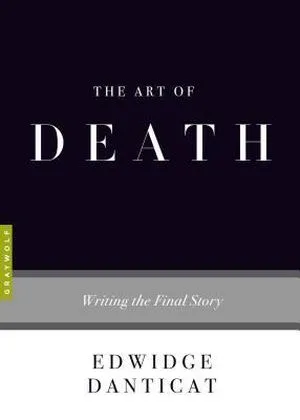
The Art of Death: Writing the Final Story by Edwidge Danticat
Writing about death, whether fictional or true, can be tricky, and Danticat discusses both writing about death as well as her own experience of losing her mother in this book. She writes about her personal experience with the illness and dying process, and also looks at how other writers have written about death and dying. Mixing criticism and memoir, Danticat shows the reader how to write well about these issues, making this an interesting look at language and what it can convey.
If you’re looking for even more books about reading and writing, check out this list of 100 must-reads or this post on NaNoWriMo books (maybe to prep for Camp NaNo?).




